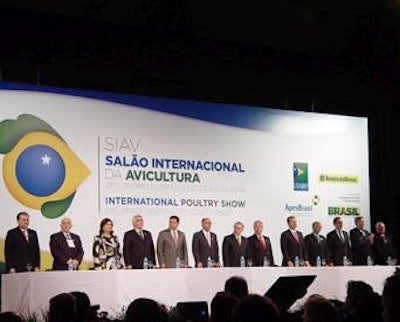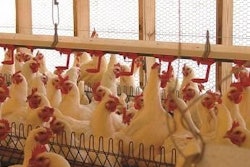
The International Poultry Show (SIAV) was inaugurated August 27 together with the 23rd National Poultry Congress of Brazil. In the words of Francisco Turra, president of the Brazilian Poultry Union (Ubabef), this event represented the "large and ambitious vision of poultry with political, economic, scientific and commercial aspects." The congress was attended by many personalities, including Brazil's Vice President Michel Temer, governors of states, house representatives, the Latin American Poultry Association (ALA) President Roberto Domenech, among others.
The Brazilian poultry industry not only produces 32 billion eggs per year, in addition to the 45 kg of chicken consumed per person. The country is also emerging as an export platform for genetic material, generating poultry equipment technology and many other things in a sustainable manner.
"Welcome to our planet poultry," Turra told the crowd. Brazil is currently the third-largest poultry producer in the world, and since 2005, it is the leading exporter. One-third of its output reaches 115 countries. On the other hand, Brazil is also losing market share due to lack of competitiveness because of labor costs, in addition to many other things that need to be improved, such as logistics.
One of the important aspects of the Brazilian poultry industry is integration: the fact that everything originates from small producers. The chain begins in the small towns and counties and ends with a chicken served on a table in Saudi Arabia or Hong Kong.

















